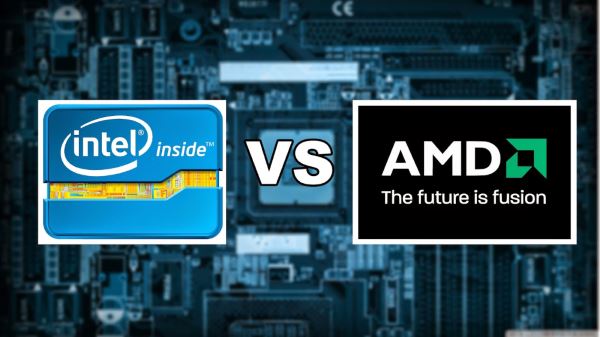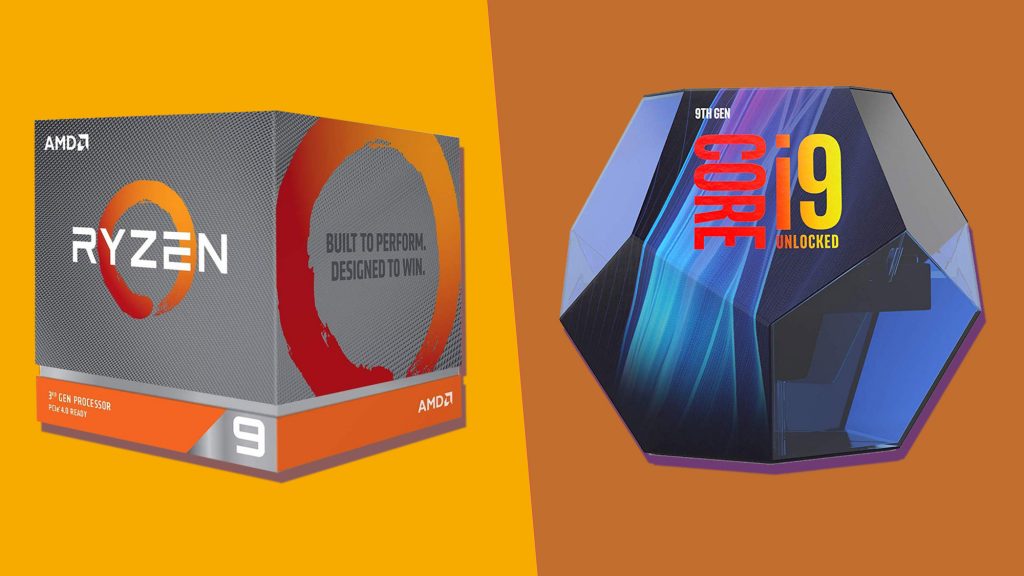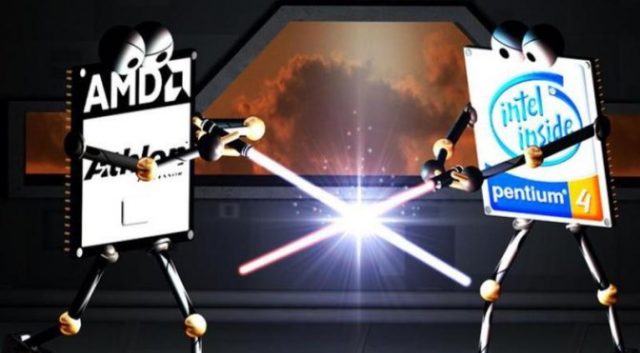
Recently, AMD has been unafraid to stand up against a predominant Intel by talking up the worth per-dollar and the outstanding quality performance that end clients can discover in their cutting edge Ryzen processors.
With regards to AMD versus Intel, everything relies upon what sort of use you are. AMD is a decent decision for passage and mid-level clients, while Intel makes the best superior chips for pro clients. This is because Intel's perfect quality chips are quicker and more power productive than AMD's.
For quite a long time, Intel ruled AMD, and it was viewed as the brand leader in the CPU market. However, things pivoted for AMD when they delivered the Ryzen 7 series, which was made to equal Intel's Core i7 products.
AMD finished the launch of Ryzen 3 and 5 models. Their most recent contribution is the Ryzen 9 3950X, AMD's initial 16-core, a 32-thread processor for everyday use. Conversely, Intel offers the 8-core, 16-string Core i9-9900K. The company promotes it as “the best gaming processor on the planet.” Intel's Core X Processor Series has up to 18 cores and 36 strings, settling the ideal decision for excellent quality clients who are into content creation.
Both AMD and Intel produce motherboards, which are the hardware at the base of every PC. While both are in a similar industry, they are continually competing against each other market share and the latest Technologies Shaping their Businesses.
Thus, Let Us See the Main Difference B/W AMD & Intel CPUs

AMD vs. Intel History
Up until around 2008, AMD was not a genuine mobile competitor for business laptops. The sizable cost investment funds over Intel CPUs couldn't compensate for a significant absence of performance and proficiency. When mobile AMD processors started to catch up, the necessary information was that AMD chips were more affordable; however, they would, in general, draw more power and run hotter. You paid more for notebooks with Intel CPUs yet increased recognizable execution and durability benefits – not generally the integral components while picking your PC, however, something that the business user needed to pay attention seriously.
AMD vs. Intel Processors: Manufacturing cycle, Power Consumption, and Heat
Both AMD and Intel have fit processors; there's no doubt. In any case, with regards to specs, there are a lot of contrasts between them. While previously, Intel was almost always first in technological advances, these days, the tides have moved, with AMD starting to lead the pack.
Above all else, AMD has changed to the 7-nanometer producing measure for its Zen 2 processors. Whereas Intel is as yet utilizing the 14-nanometer lithography even for the tenth generation of its Core processors. That prompts a progression of advantages for AMD's Ryzen processors contrasted with their Intel partners.
Due to the littler assembling measure, Ryzen CPUs have an expanded thickness of semiconductors per mm², produce less warmth, and require less power than tantamount Intel CPUs.

AMD Vs. Intel Market Share
We see both AMD and Intel processors being utilized in work area PCs, workstations, tablet PCs, and servers. Presently, while Intel has been the market leader in the CPU domain for a serious huge time, AMD hasn't quit developing in quality, particularly since the most recent CPU architecture release.
From 2014 to 2018, Intel's income developed from $55.9B to $70.8B, and AMD's from $5.5B to $6.5B. Notwithstanding the strength of Intel, the two organizations saw a fundamentally the same as the average income growth rate of 6.4% (AMD) and 6.2% (Intel).
AMD Vs. Intel – Which is better?
There isn't a champion victor here, as it genuinely just relies upon how you are using your system.
If you need an overall performance PC that doesn't burn up all available resources or a machine that can handle your extreme Mental Health In The Workplace, at that point, you are probably best off with an AMD chip. In any case, if you need an excellent quality gaming system and aren't apprehensive about testing your spending plan, at that point, Intel remains your smartest choice.
The PC scene is a bit more confounded, with Ryzen 4000 system just barely beginning to stream through to shops and Intel's Tiger Lake expected to launch before the end of the year; however, the general rule applies.
